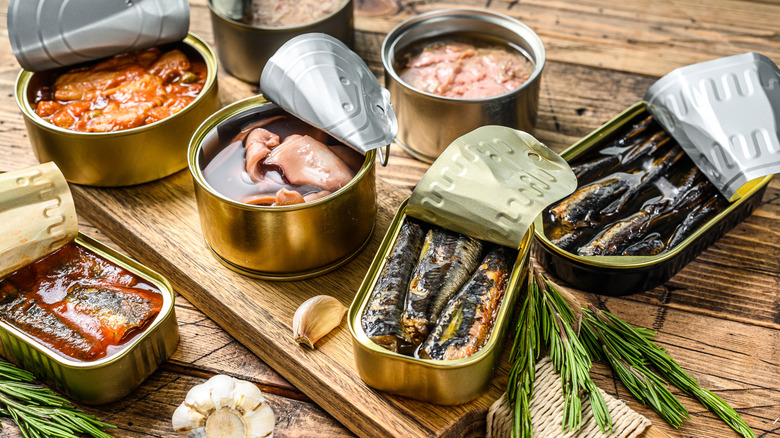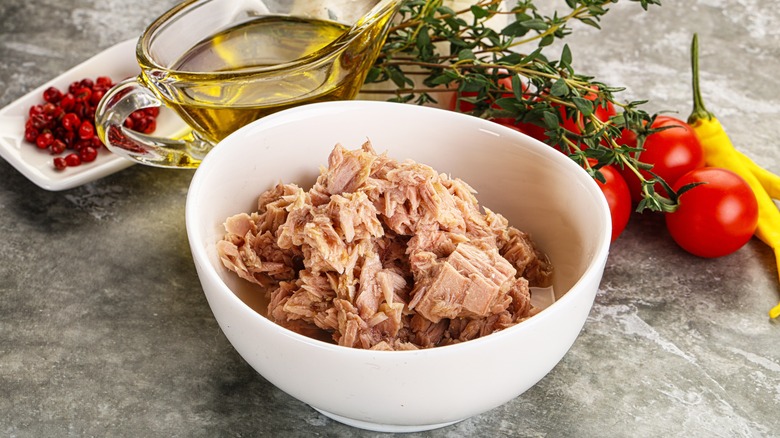The Store-Bought Canned Fish You Should Always Add To Your Cart
Though there's no denying the convenience of canned fish, no two varieties are created equally. While many store-bought tinned fish are known for their health benefits, one kind in particular stands out. Though skipjack tuna might not seem too special, its accessibility, robust taste, and nutrition makes it superior to many others. Skipjack tuna is common in grocery stores, making up over 70% of tuna sales in the U.S.
Store-bought canned skipjack tuna can be found for as low as 67 cents per ounce, making it an affordable lean protein option (32 grams per 5-ounce serving). Plus, skipjack is high in omega-3 fatty acids, vitamin B12, and vitamin D.
Aside from being easy on your wallet and nutritious, it's also a conscientious environmental choice. Skipjack tuna is typically sustainably managed, not overfished, and harvested in ways that minimally impact its environment. Though skipjack is lean, it's still quite tasty, especially when paired with ingredients that complement its soft texture and fishy flavor. Try incorporating canned skipjack into an herbaceous and cheesy tuna melt or tuna salad.
Canned skipjack tuna is low in mercury
Skipjack is also generally lower in mercury. The Environmental Protection Agency (EPA) rates skipjack as a "best choice" fish due to its small size and short lifespan. Mercury concentration is around .13 ppm, meaning that 2 to 3 servings can be safely consumed per week. This applies to canned skipjack as well.
Though mercury is present in all seafood, opting for a minimal-mercury fish grants consumers the ability to safely eat more servings of fish per week. High consumption of mercury (often acquired from eating large amounts of mercury-rich seafood) is associated with neurological disorders, memory problems, and other mental health issues.
Canned skipjack tuna (a seafood already proven to have lower traces of mercury on average) tends to have even less mercury than its frozen and fresh counterparts. This is because tinned versions usually contain younger, smaller tuna that are less likely to be exposed to mercury. And if you need a little more guidance, read our list of store-bought canned tuna brands ranked from worst to best.

